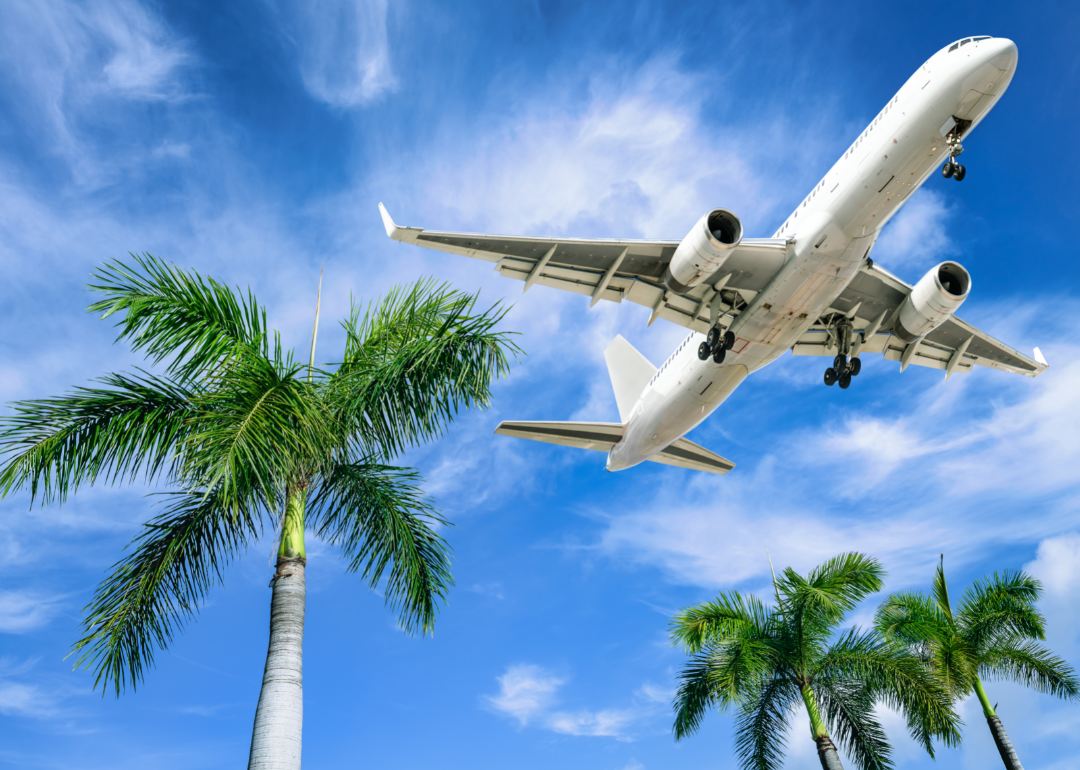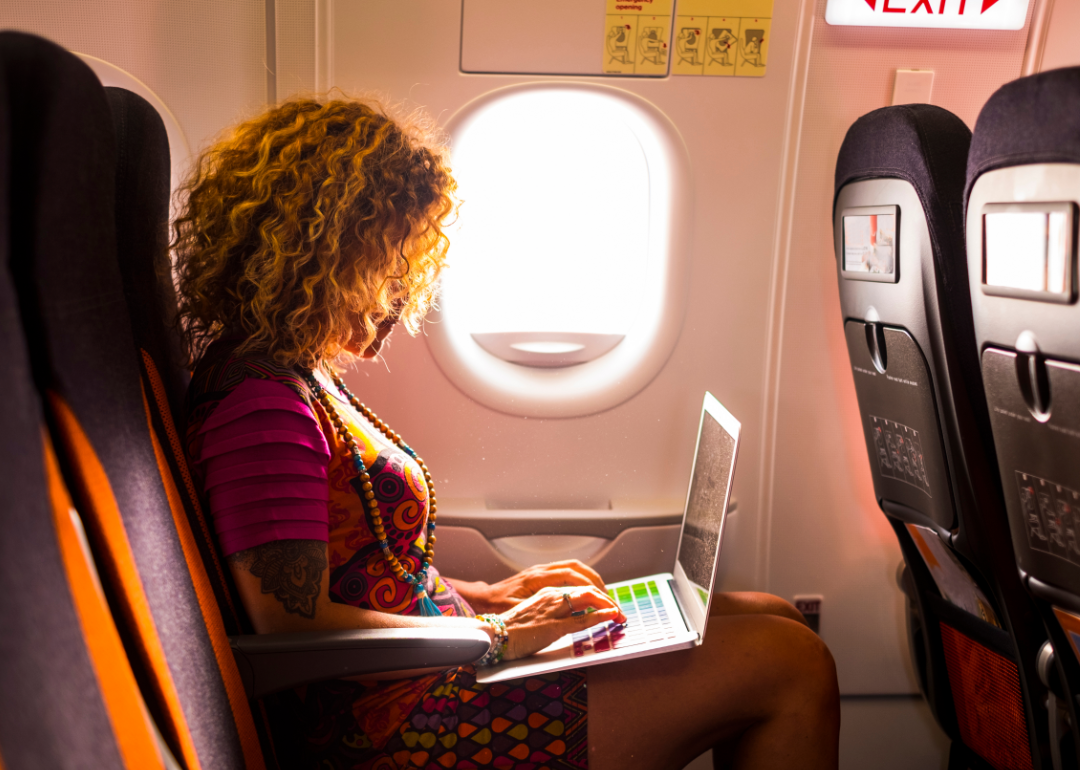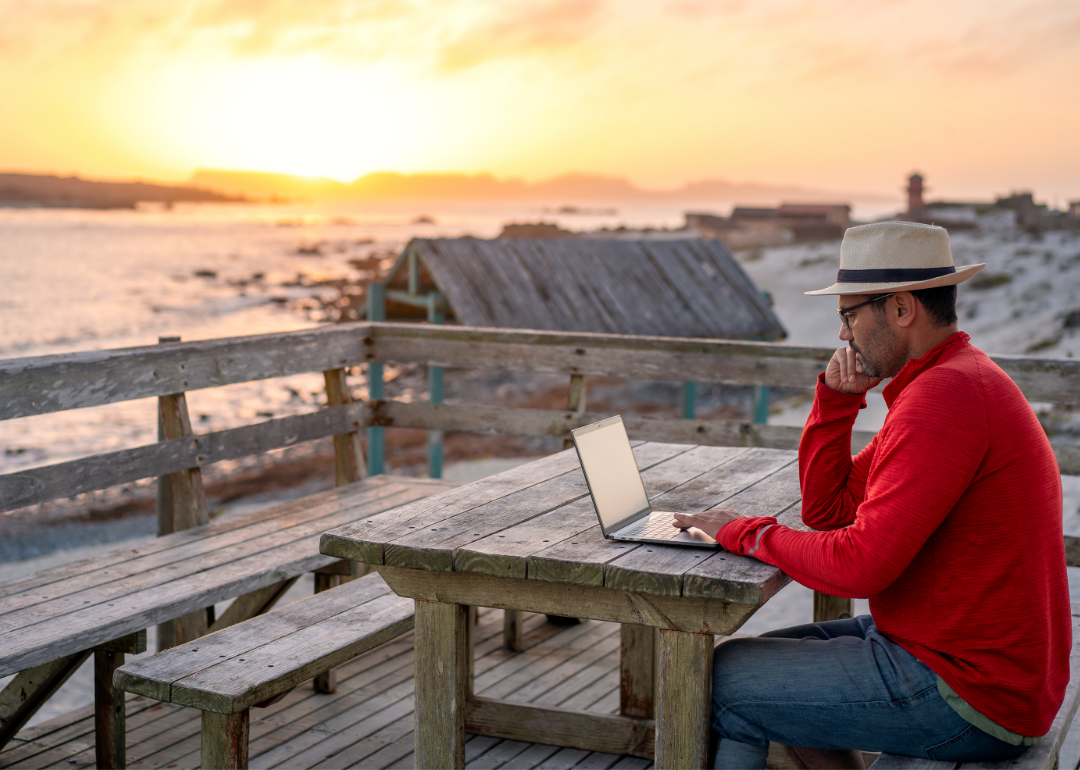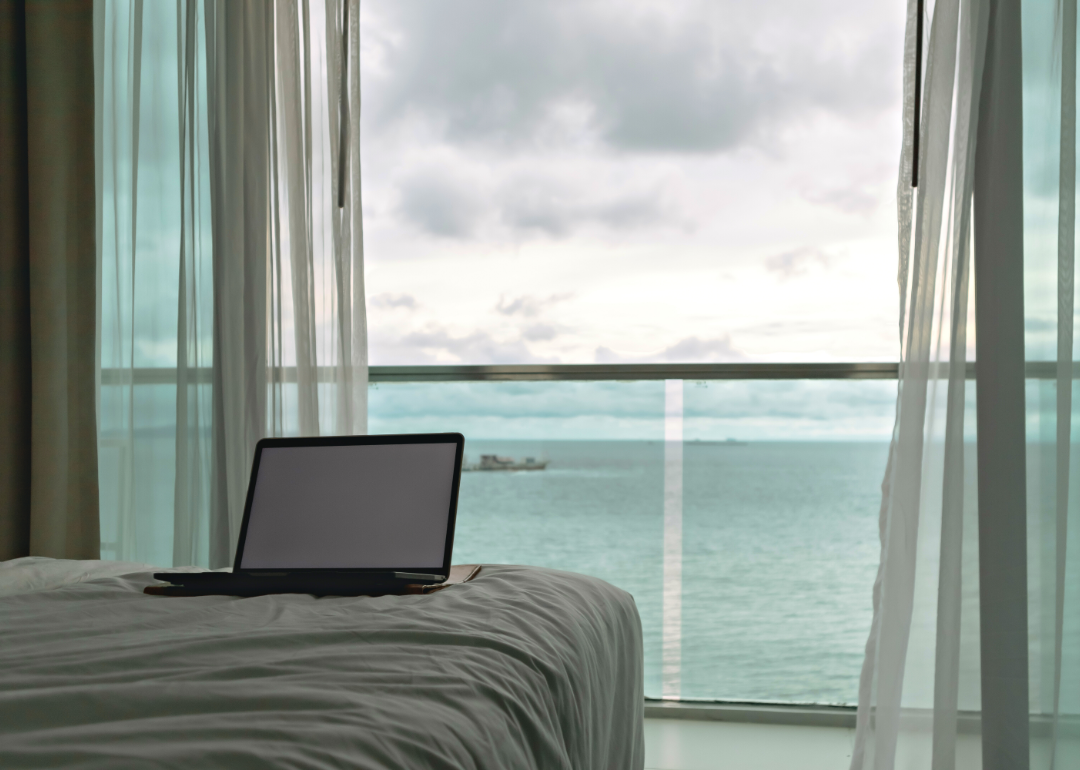Bleisure vacations blend business with time off in the new, work-from-home era

Canva
Bleisure vacations blend business with time off in the new, work-from-home era
A plane takes flight with palm trees blowing in the wind below.
The COVID-19 pandemic has flipped our understanding of life on its head—especially when it comes to work.
Though work-from-home at first seemed to be a temporary trend, employees are increasingly staying home by choice rather than necessity even as workplaces have reopened. In January 2022, Pew Research found 59% of employed adults reported working from home all or most of the time; 61% of that group said they were doing so out of personal preference.
Some claim hybrid working has made balancing their personal and professional lives easier, but others say it has made it more difficult. Employees report losing out on the social aspect of interacting with coworkers face-to-face.
There is now a whole new world of hybrid working arrangements available, and the relative mental health, productivity, and creativity benefits of each are being explored and appraised. Workcations, for instance, are when employees work remotely from an exciting location they can take advantage of during their off-hours, as digital nomads have done for years.
Bleisure travel is when an employee combines a business trip with the opportunity for leisure, often by extending the trip by a weekend. Bounce looked into the details behind the growing popularity of bleisure travel using sources from across the internet, including the Society for Human Resource Management, the Atlantic, and TripActions.
Bleisure trips offer similar advantages and disadvantages as hybrid work at large. Expanding one’s creativity, productivity, and motivation through novel experiences is lucrative—so long as one follows the advice below to balance work with personal time, and making sure that work doesn’t take precedence while out of town.
![]()

Canva
What are bleisure trips?
Rear view of a couple wearing white hats sightseeing and pointing into the distance.
“Bleisure” trips are when an employee turns a typical business trip into an opportunity to add in nonwork activities. One may bring friends or family along or extend the journey after business meetings are over to squeeze in some sightseeing, relaxing, or other personal time before heading home. During bleisure trips, the company will typically cover accommodation and expenses during the work period, and the employee will be responsible for funding any add-ons or additional time.
Employees and employers need to consider several things before taking a bleisure trip. For example, if an employee works odd hours off-site, who is responsible for ensuring a safe workspace? What about wages and hours? For instance, will the employee be allowed to work in a different time zone? If so, do certain hours need to overlap with the home office? How will working hours and leisure hours be distinguished?

Canva
Bleisure trips are on the rise
A woman types on her laptop on an airplane.
Even before the onset of the COVID-19 pandemic, travel expense software company Navan (formerly TripActions) reported that more than one-third of business travelers were tacking on extra weekends before or after work-related travel. The company says this indicated people were combining personal and business travel.
As of 2021, 66% of companies either plan to or already explicitly allow adding leisure time to business trips, according to the U.S. Corporate Travel Report 2020-24 by Phocuswright.
Bleisure-friendly work environments are becoming more frequently touted in job descriptions as lucrative perks. The Global Business Travel Association reports that global business travel hit a whopping $754 billion in 2021, and it’s only increasing—GBTA expects it to exceed $1.48 trillion in 2024.

Canva
How bleisure impacts work-life balance
A man sits at a wooden table on a deck watching the sunset.
Employees eager to take advantage of the opportunity for a bleisure trip should carefully consider the pros and cons. On the one hand, working remotely and building our own schedules can provide flexibility for better work-life balance, which offers mental health benefits. However, it also blurs the lines between one’s personal and professional lives and further challenges a worker to disengage, relax, and refresh from work.
Despite still being busy with tasks, bleisure workers have reported feeling rejuvenated simply from the novelty of experiencing an unknown environment. New experiences have proven benefits for one’s capacity for creativity, motivation, and productivity. Swapping the office for a more nature-focused and daylight-filled area can offer health benefits—which could arguably help avoid burnout and cut back on sick leave that employees would otherwise take further down the line.

Canva
Tips for successful bleisure trips
A laptop lies unattended on a hotel bed with a view of the ocean in the background.
It is certainly possible to have both a productive and enjoyable bleisure trip, so long as one openly communicates and plans ahead of time.
Employees should receive explicit permission from their employer before the trip to ensure both sides have equal expectations surrounding communication, working hours, and other aspects. Be proactive in making sure your accommodation away has reliable WiFi, outlets, printers, and any other equipment you may require. Ensuring your workspace is private and free of distractions and noise is essential. Finally, set boundaries for yourself, so you let coworkers know when they can reach you—and when you’re officially off the clock. Protecting time off is important so you don’t end up working endlessly without taking the valuable opportunity for activity and rejuvenation that a bleisure vacation offers.
This story originally appeared on Bounce and was produced and
distributed in partnership with Stacker Studio.